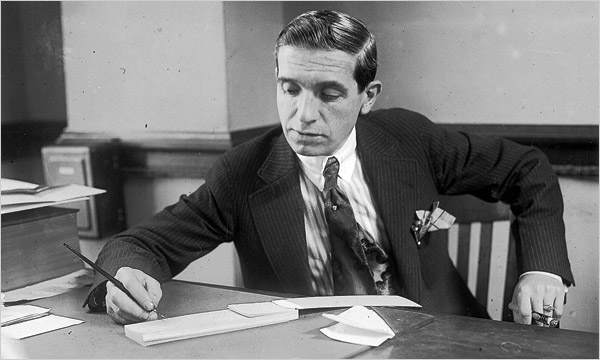‘utility settlement coin’
| September 16th, 2017 at 1:37:08 AM permalink | |
| Pacomartin Member since: Oct 24, 2012 Threads: 1068 Posts: 12569 | Virtual Currency Definition - Wikipedia In 2012, the European Central Bank defined virtual currency as "a type of unregulated, digital money, which is issued and usually controlled by its developers, and used and accepted among the members of a specific virtual community". In 2013, Financial Crimes Enforcement Network (FinCEN), a bureau of the US Treasury, in contrast to its regulations defining currency as "the coin and paper money of the United States or of any other country that is designated as legal tender and that circulates and is customarily used and accepted as a medium of exchange in the country of issuance", also called "real currency" by FinCEN, defined virtual currency as "a medium of exchange that operates like a currency in some environments, but does not have all the attributes of real currency". In particular, virtual currency does not have legal tender status in any jurisdiction. In 2014, the European Banking Authority defined virtual currency as "a digital representation of value that is neither issued by a central bank or a public authority, nor necessarily attached to a fiat currency, but is accepted by natural or legal persons as a means of payment and can be transferred, stored or traded electronically".  Per a Financial Times , Swiss banking giant UBS – the developer of the utility settlement coin – is in talks with a number of central banks toward adoption of its digital currency tokens. First reported in late 2015, the ‘utility settlement coin’ was developed as digital token that enabled financial institutions to swap value including equities, bonds and payments in digital tokens without the actual transfer of fiat cash. These digital tokens are designed to be convertible into different fiat currencies directly at their corresponding central banks, with all transactions recorded on a blockchain. A year ago, three global banks joined UBS’ endeavor to develop and introduce a digital token geared for settlements in the global banking industry. BNY Mellon, Deutsche Bank and Santander came onboard the blockchain-based project to “dramatically enhance the payments experience,” as BNY Mellon put it. Today’s report reveals six additional big banks joining the working group, namely: Barclays, Credit Suisse, Canadian Imperial Bank of Commerce, HSBC, MUFG and State Street. We have been in discussions with central banks and regulators and we will continue that over the next 12 months with the aim of a limited ‘go live’ at the back end of 2018. The UBS executive also revealed details of the immediate application of the digital currency following its launch next year. Participating banks will be able to use the utility settlement coin to pay each other, almost instantly, in different currencies. ‘If one bank owed $100 million to a rival with a £50 million debt in the other direction, the two institutions could transfer the money almost instantly using the new coins,” an excerpt from the report explained. |
| September 16th, 2017 at 5:04:35 AM permalink | |
| Fleastiff Member since: Oct 27, 2012 Threads: 62 Posts: 7831 | Essentially its a Super=BitCoin, which banks agree to accept at par and then convert to "real' currency at agreed upon rates with the risk of conversion being upon the various central banks. So its a chip that the casino's cage will pay instantly to the presenter and any later questions of counterfeiting or the like will solely by the concern of the casino. The main point seems to be that this SuperBitCoin, by agreement, gets value solely because the various Banks have already agreed upon which competing cryptocurrencies are valid and at what rates of exchange. |
| September 16th, 2017 at 6:45:47 AM permalink | |
| Pacomartin Member since: Oct 24, 2012 Threads: 1068 Posts: 12569 |
UTS backers are convinced of the benefits of using the digital currency to trade anything from securities, derivatives, bonds and equities. The current clearing and settlement system is viewed as cumbersome in comparison, taking up to three days to clear a trade and tying up cash in the process. |
| September 16th, 2017 at 6:51:01 AM permalink | |
| Fleastiff Member since: Oct 27, 2012 Threads: 62 Posts: 7831 |
Yes, there are obvious benefits and eliminating a three day float is always viewed as a fine goal but this puts the risk back on the Central Banks who won't be able to do much if some previously well respected crypto currency turns out to be the equivalent of a Polish zloty. |
| September 16th, 2017 at 10:39:24 AM permalink | |
| Pacomartin Member since: Oct 24, 2012 Threads: 1068 Posts: 12569 |  There are still so many currencies in Europe (10 in EU alone) and it doesn't look like they are going to migrate to the EURO quickly. There has to be a demand for finance not to slow things down or pay percentage points for conversion. |
| September 16th, 2017 at 10:55:53 AM permalink | |
| petroglyph Member since: Aug 3, 2014 Threads: 25 Posts: 6227 | And yet actual possession of the stocks themselves still remain at the DTCC. It is layer upon layer of fiat, with some entity grasping a vig each time another pseudo money changes hands. The last official act of any government is to loot the treasury. GW |
| September 16th, 2017 at 12:52:19 PM permalink | |
| Pacomartin Member since: Oct 24, 2012 Threads: 1068 Posts: 12569 |
Cosimo de' Medici learned the lesson in 15th century Florence. Why make wool which you can sell for money, when it is much more profitable to make "money" directly.  Voltaire famously wrote that “Paper money eventually returns to its intrinsic value—zero." What would he say about bitcoins? Or you could say that Charles Ponzi was one of the great visionaries of the 20th century.  |
| September 16th, 2017 at 2:04:19 PM permalink | |
| petroglyph Member since: Aug 3, 2014 Threads: 25 Posts: 6227 | http://www.zerohedge.com/news/2017-09-16/if-jamie-dimon-hates-it-so-much-then-why-jpmorgan-buying-bitcoin-europe Certainly a retirement consultant Netflix has a series on Medici masters and also a documentary on bitcoin. The last official act of any government is to loot the treasury. GW |
| September 16th, 2017 at 4:13:01 PM permalink | |
| Pacomartin Member since: Oct 24, 2012 Threads: 1068 Posts: 12569 |
Who is Satoshi Nakamoto ? As of 24 May 2017, Nakamoto is believed to own up to roughly one million bitcoins, with a value estimated at approximately $3.6 billion USD as of September 2017. That would make Charles Ponzi green with envy. Dorian Nakamoto [birth name is Satoshi Nakamoto] Nick Szabo Hal Finney (4 May 1956 – 28 August 2014) Craig Steven Wright Nick Szabo & Hal Finney You would think that after ten years if he is worth over $3 billion he would have a couple of toys that are worth hundreds of thousands of dollars.  |
| September 16th, 2017 at 6:10:44 PM permalink | |
| Fleastiff Member since: Oct 27, 2012 Threads: 62 Posts: 7831 | Obviously there is a desire for cryptocurrencies and not just computer geeks that want them. Casinos seem to like them for a variety of reasons business certainly accept them in a hodgepodge of circumstances as do taxing authorities in various countries. China recently blessed their own digital currency and rattled a saber about others digital currencies its citizens might have been using. So I wonder: would a gold coin with an image the de Medici family on one side and Ponzi on the other be accepted. For years these privately minted coins were sold at inflated values. Someone must want a store of value but not want to be stuck with unsaleable junk ten years down the road. Usually 3.6 billion 'overhanging the market' would be a damper, but nowadays it is not. The currency, the platform, the trading exchanges, the brokering and breaking all seem to be going along without too many hitches but there still are memories of glitches, frauds and delays. Why miss out on the profits of trading tulip bulbs? BUY. |

